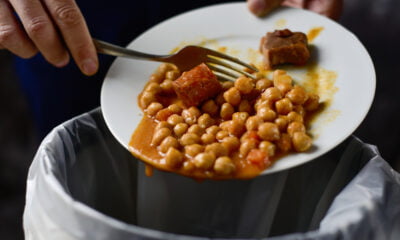

News
Improved Food Waste Sustainability Could Feed Millions
FareShare, the food redistribution charity, has received a record breaking amount of food in the last year. FareShare revealed that it was able to distribute enough food in 2015/16 to provide 18.3 million meals to people in need, and most of 9,070 tonnes of food was saved from becoming waste. However, FareShare says they could serve approximately 800 million meals a year if good, surplus food is diverted to them instead of becoming waste produce.
FareShare works with retailers including Asda, Sainsbury’s, Tesco and The Co-operative, and manufacturers such as Kellogg’s and Nestlé, to identify and redistribute in-date, good to eat food that has become surplus – often long before it reaches a supermarket shelf – for reasons such as forecasting errors, mislabelling, or damaged packaging.
Last year, the number of charities and community groups FareShare redistributed food increased by 29% to 2,489. These organisations include homeless shelters, children’s breakfast clubs and domestic violence refuges, enabling them to provide nutritious meals for their beneficiaries alongside life-changing support.
The value of the food that FareShare redistributes to the charity sector has been estimated at £19.6 million a year. Without food from FareShare, one in five charities say they would probably or definitely have to close, while 58% say they would have to reduce the amount of food they provide, and one in four would have to cut back other services.
Lindsay Boswell, CEO of FareShare said: “Last year, with support from switched-on food companies, FareShare diverted more food from waste and supported more frontline charities than ever before, helping to feed over 200,000 vulnerable people every week. “But there’s so much more to do – right now, we’re only accessing the tip of a food waste iceberg. Hundreds of thousands of tonnes of perfectly edible food gets thrown away, or used to generate energy or animal feed, every year – enough to provide 800 million meals for people in need. “Demand for surplus food is outstripping supply. FareShare has 20 Regional Centres around the UK, and every one of them has a waiting list of charities that need food. We’re urgently calling for more food companies to work with us to redistribute their good, surplus produce, and for more volunteers to help us get that food to the people who need it most.”


 Environment12 months ago
Environment12 months agoAre Polymer Banknotes: an Eco-Friendly Trend or a Groundswell?

 Features11 months ago
Features11 months agoEco-Friendly Cryptocurrencies: Sustainable Investment Choices

 Features12 months ago
Features12 months agoEco-Friendly Crypto Traders Must Find the Right Exchange

 Energy11 months ago
Energy11 months agoThe Growing Role of Solar Panels in Ireland’s Energy Future





























